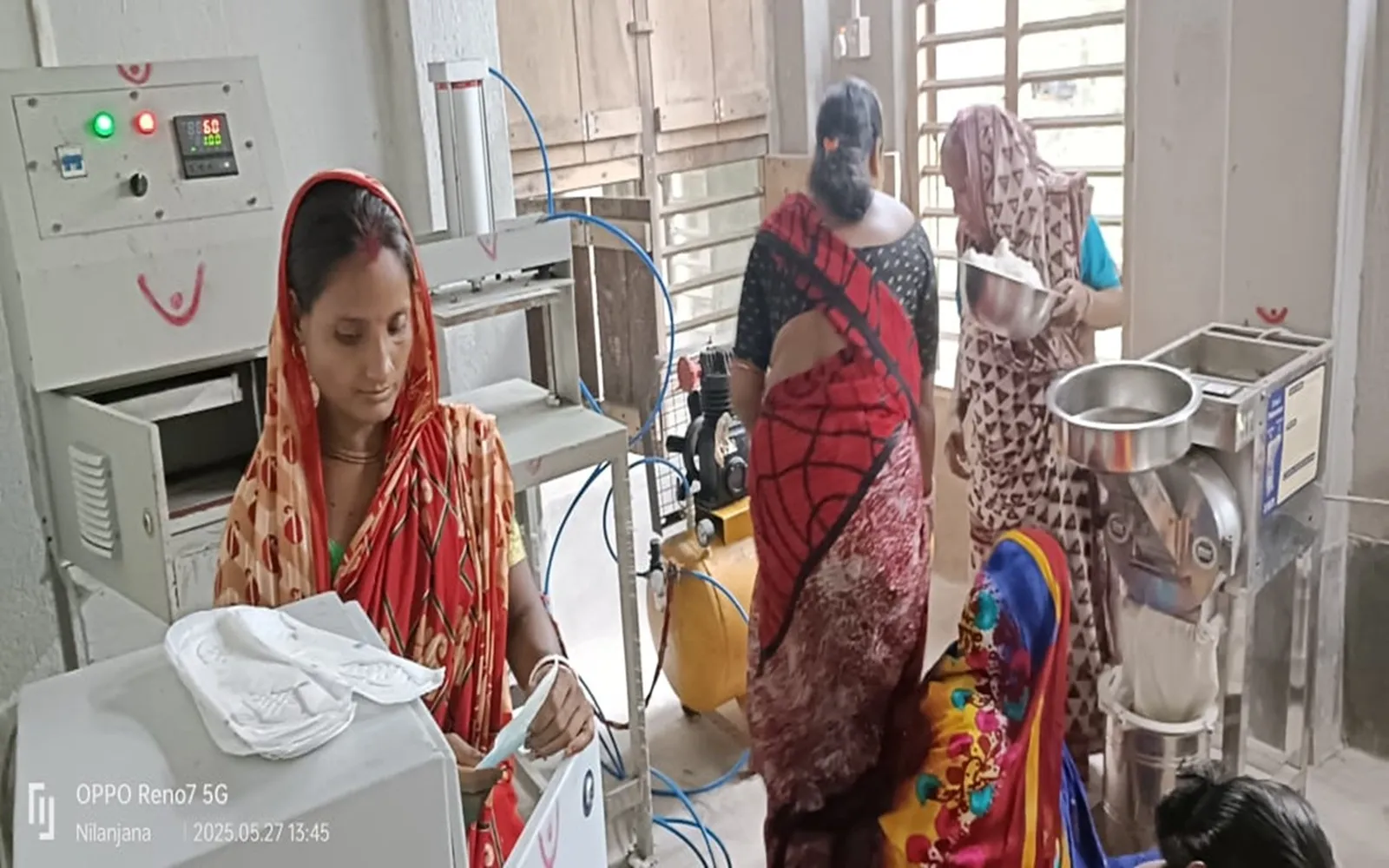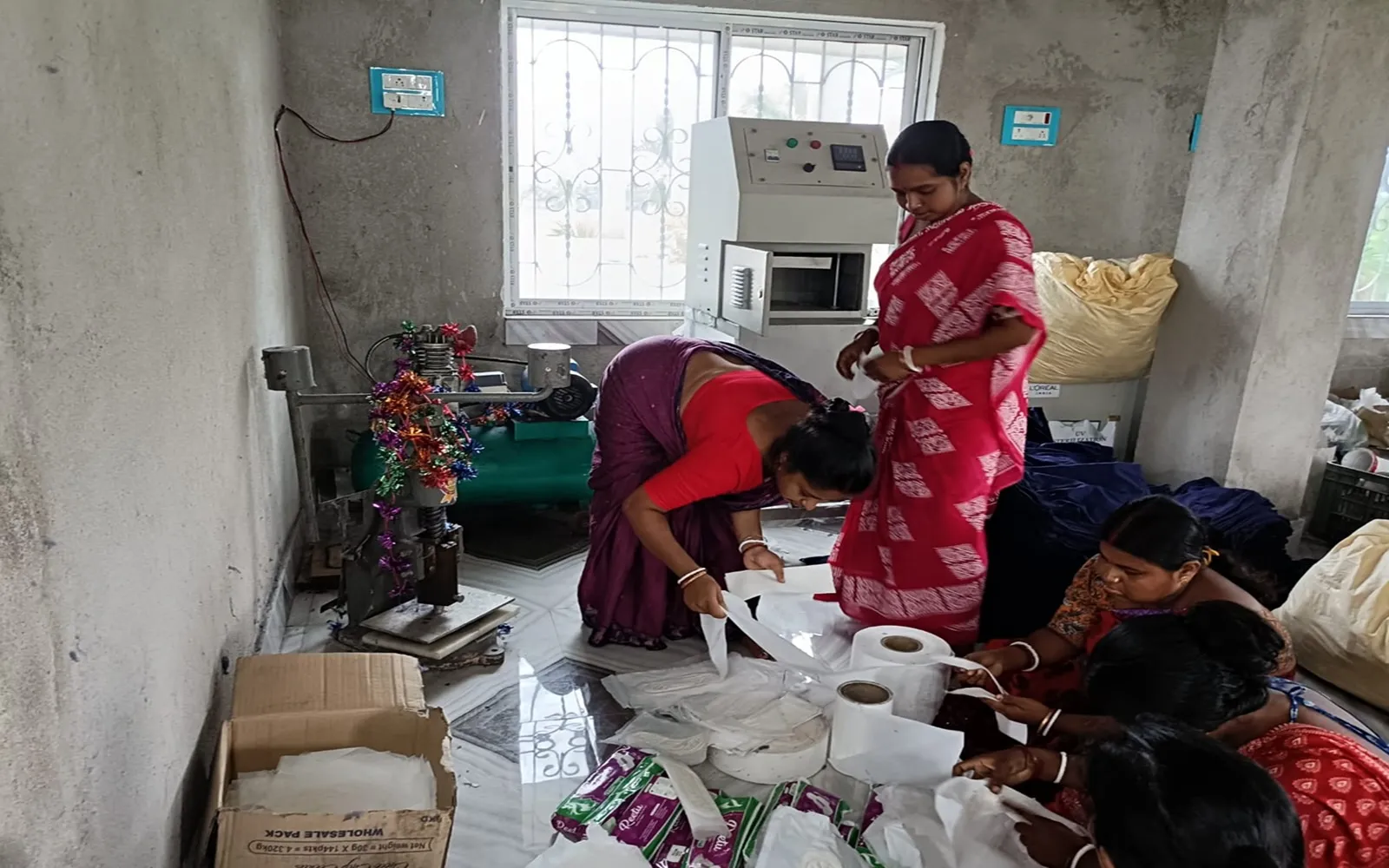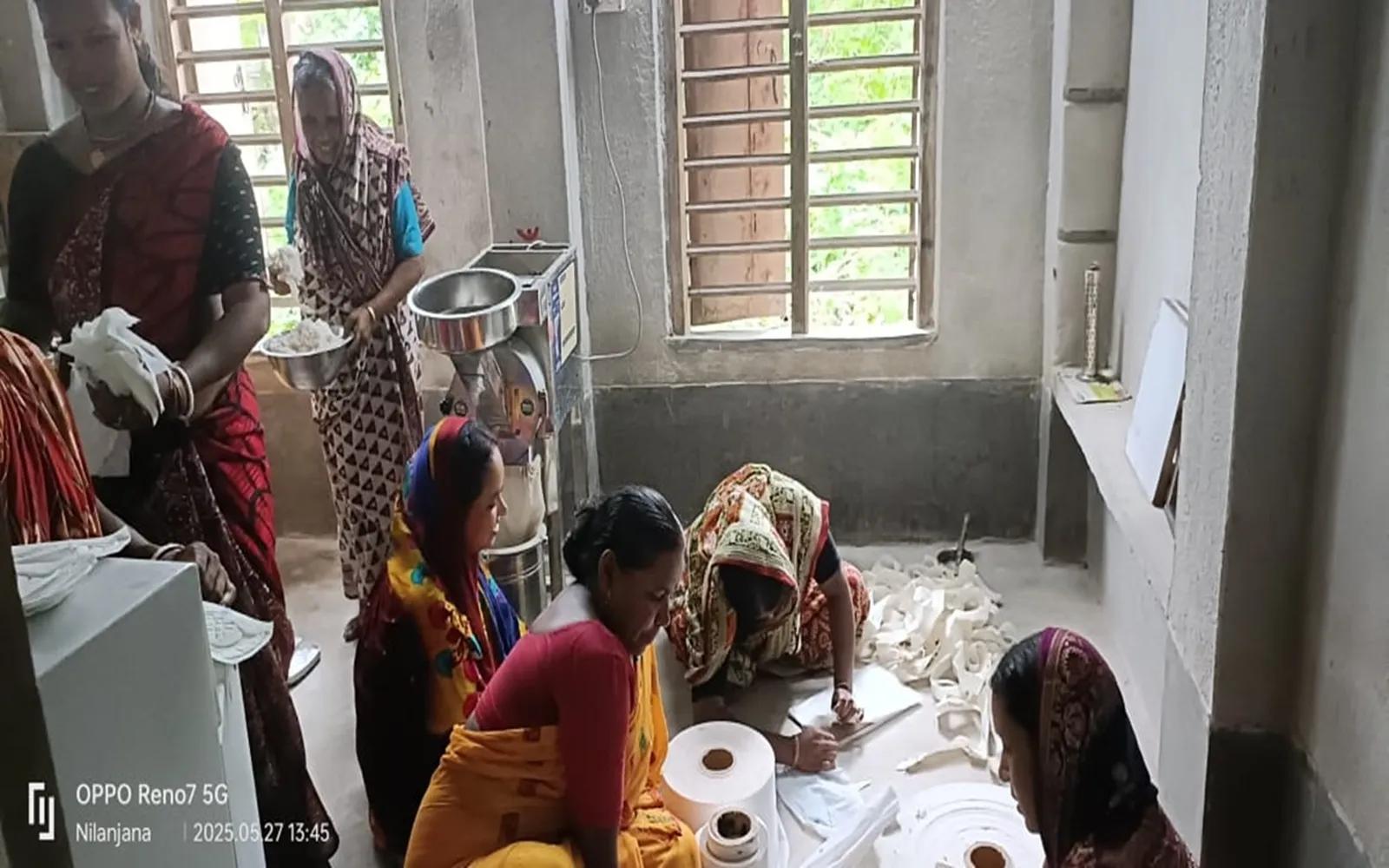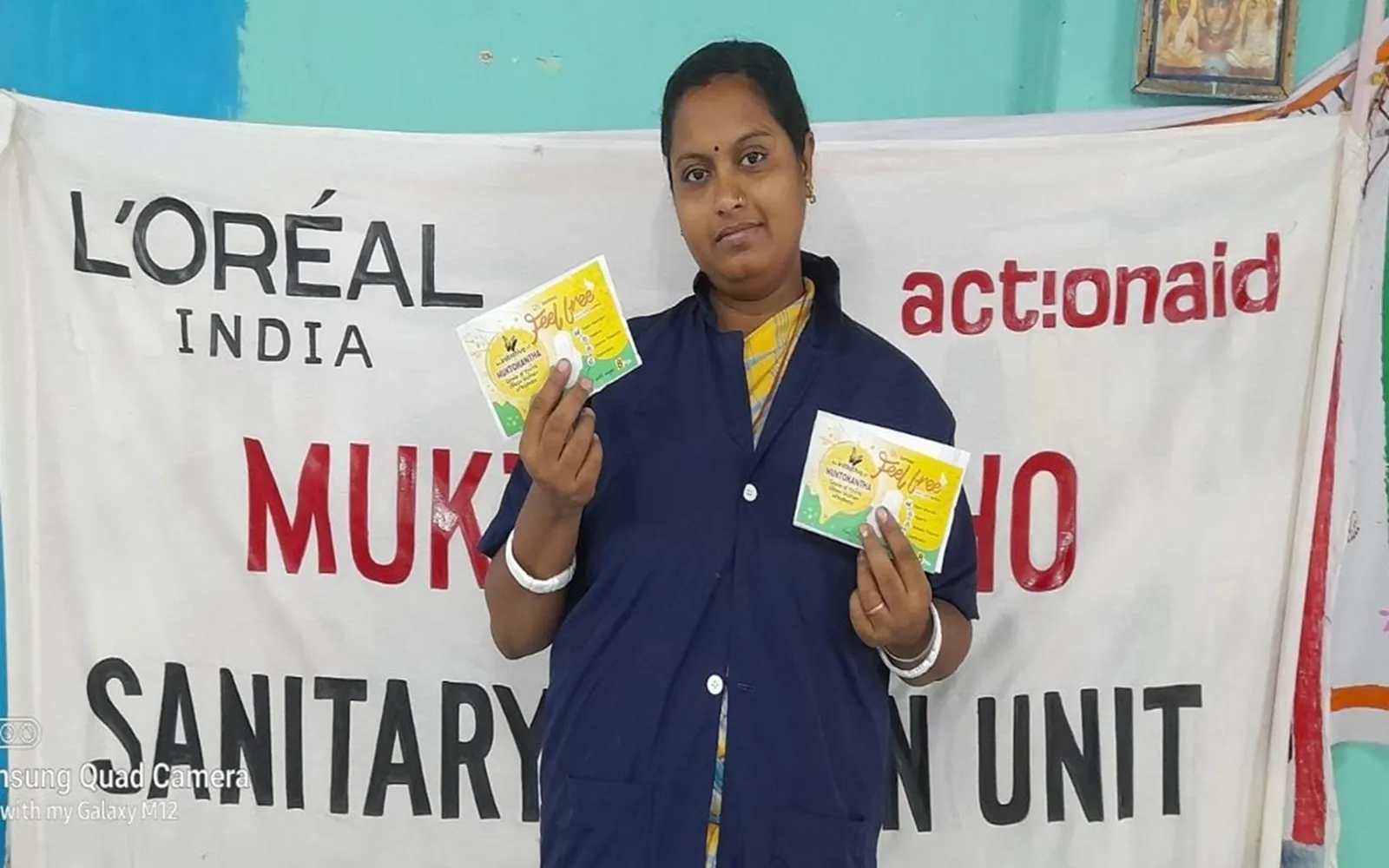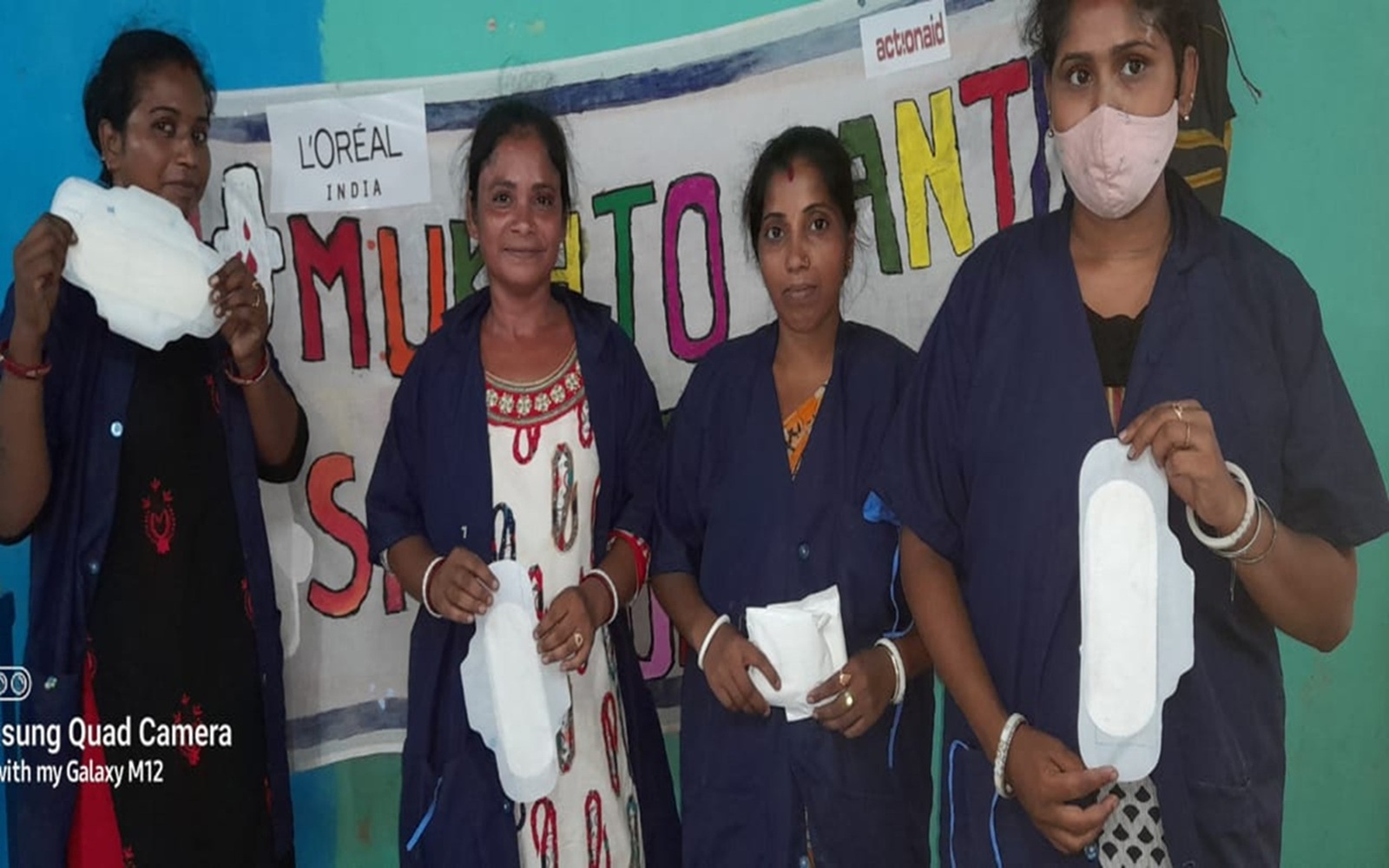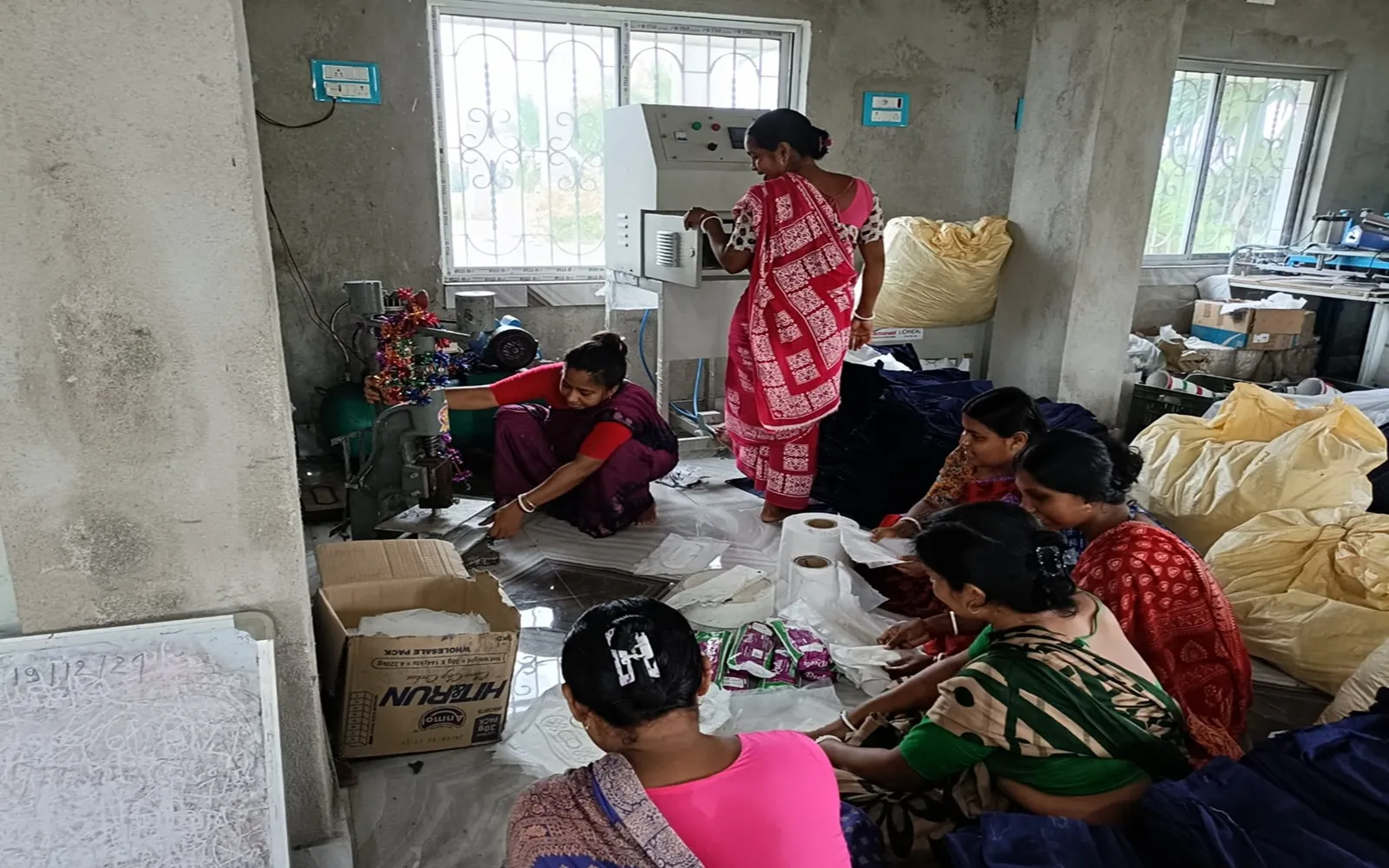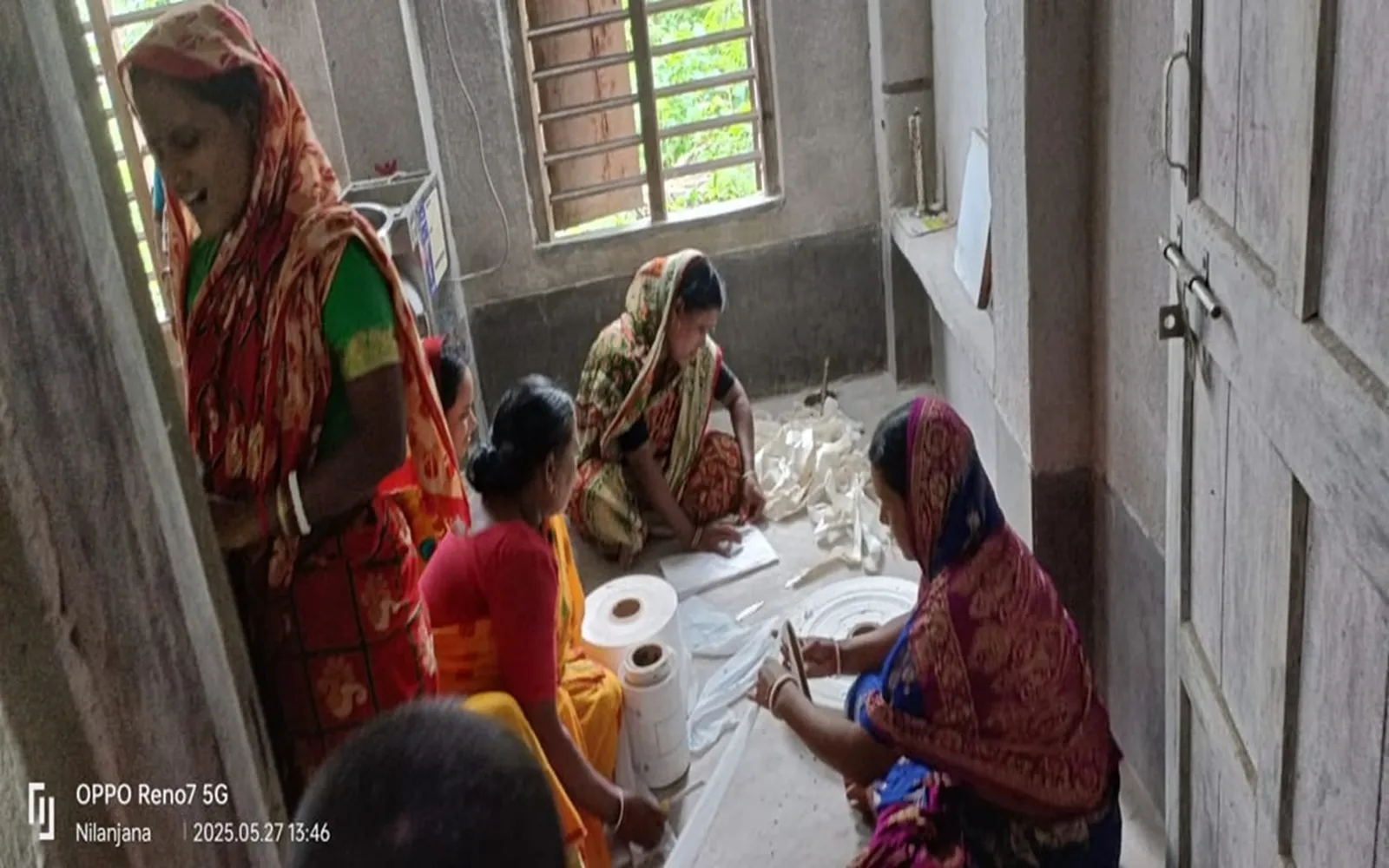To address this, ActionAid Association designed a holistic intervention—not only providing an income-generating opportunity but also building women’s knowledge and awareness around Sexual and Reproductive Health and Rights (SRHR). Producing their own sanitary napkins gave these women a sense of autonomy, pride, and dignity, while also fostering broader awareness within their communities.
While the units require support in branding and marketing their products, their impact is already evident. The women of Digambar Sarada Sangha have begun supplying sanitary napkins to school vending machines in local institutions such as Digambarpur East Nabin Chandra High School, Digambar Shiksha Niketan, and Mahendra Vidyamandir. This easy access has empowered thousands of adolescent girls to manage their periods with dignity and confidence.
Although the production units have direct engagement of 30-40 women —their reach extends to more than 5,000 women and girls in the region by making sanitary products affordable, accessible, and available.
Beyond schools, these women also sell their sanitary napkins at village fairs and within their communities, earning a modest profit of Rs. 2 per pad. In doing so, they have emerged as powerful advocates for menstrual health—challenging deep-rooted myths and taboos and becoming the face of a local movement toward dignity, awareness, and empowerment.
These units began production in Kolkata, where during the COVID-19 pandemic, with support from L’Oréal, ActionAid Association launched a sanitary napkin production unit in the city, engaging a group of 15 young women. Driven by their enthusiasm and dedication, the unit quickly became operational. These young women not only produced sanitary napkins but also led awareness campaigns on menstrual health and hygiene, educating their peers and wider communities.
Recognizing the urgent need for accessible sanitary products during the pandemic, the group mobilized volunteers to reach the city’s most underserved areas. In collaboration with the Kolkata Police, they advocated for the installation of sanitary napkin vending machines in all police stations—an important step in breaking menstrual taboos and promoting menstrual hygiene in public spaces.
However, when the rental support for the urban unit ended and the young women running the unit found alternative livelihood opportunities, the SHG groups from the South 24 Parganas, came forward to take up the operations. The communities offered free space to continue the initiative. That was when the two sanitary napkin production machines were relocated to these rural blocks and entrusted to local women’s groups.
This transition marked the beginning of a powerful rural empowerment model, shifting from a city-based youth-led initiative to a sustainable, community-driven effort in some of West Bengal’s most vulnerable areas.
 Author: Reshmi Ganguly and Surajit Neogi
Author: Reshmi Ganguly and Surajit Neogi
